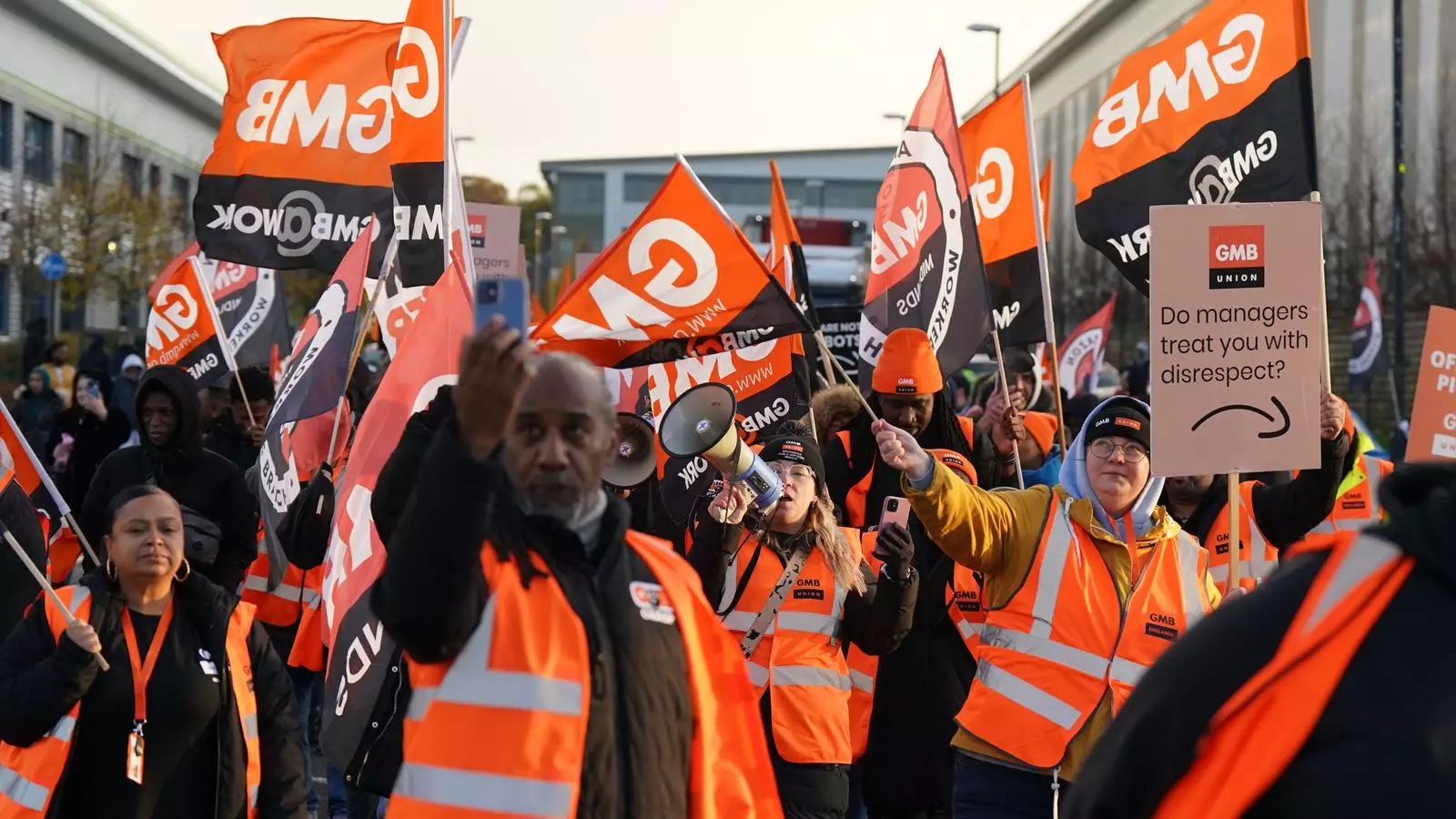Today, Amazon workers in the UK are staging a strike on Black Friday, one of the busiest shopping days of the year. Over 1,000 employees at the company’s Coventry warehouse will participate in the walkout, organized by the GMB union. The strike is a culmination of a long-standing dispute over pay and working conditions. While Amazon claims that customer experience will not be affected, protests are also scheduled outside the company’s head office in London and coordinated strikes are expected to take place in other European countries and the US. This article delves into the significance of this strike and the demands of the workers.
A Turning Point for Amazon
The GMB union has declared that this strike will go down as a turning point in Amazon’s history. Workers, who are integral to Amazon’s business model, are standing up to demand their fair share of the company’s enormous wealth. The GMB has been advocating for a minimum pay rate of £15 an hour and improved working conditions, citing the ongoing cost of living crisis faced by staff. However, Amazon has only committed to raising the minimum starting pay to up to £13 an hour by next April. This disconnect between workers’ demands and the company’s response has created an atmosphere of tension.
The magnitude of this strike cannot be undermined. Unions assert that it will be the largest day of industrial action in Amazon’s history. The impact is not limited to the UK alone; workers in other European countries and the US are joining the strike action. This solidarity across borders highlights the shared discontent among Amazon workers worldwide. The ongoing escalation of industrial action sends a clear message to the company: workers are determined to fight for change.
Amazon, however, maintains that the strike will not disrupt customers. The company claims that it regularly reviews pay to offer competitive wages and benefits. By 2024, the minimum starting pay will increase to £12.30 and £13 per hour, depending on the location. They also emphasize the benefits, positive work environment, and career opportunities they provide. Amazon sees these factors as reasons why people choose to work for them. Nevertheless, the persisting strikes indicate that workers feel these efforts are not enough to address their concerns.
This strike marks the 28th day of industrial action targeting Amazon in the UK this year. It is indicative of deeper issues within the company, beyond immediate pay disputes. The conditions that have led to such widespread strikes demonstrate the dissatisfaction and frustration felt by many Amazon employees. The repeated calls for improved pay and working conditions underline the need for a fundamental shift in the company’s approach to labor.
The strike by Amazon workers on Black Friday represents a crucial moment in the company’s history. Workers across the UK, Europe, and the US are joining forces to demand better pay and conditions. While Amazon insists that customers will not be affected, the scale of the strike and the clear discontent expressed by workers suggest otherwise. As the strike unfolds, it is becoming increasingly evident that the demands of the workers are resonating with Amazon employees worldwide. The outcome of this strike will undoubtedly shape the future of labor relations within the company and may have broader implications for the gig economy as a whole.


Leave a Reply